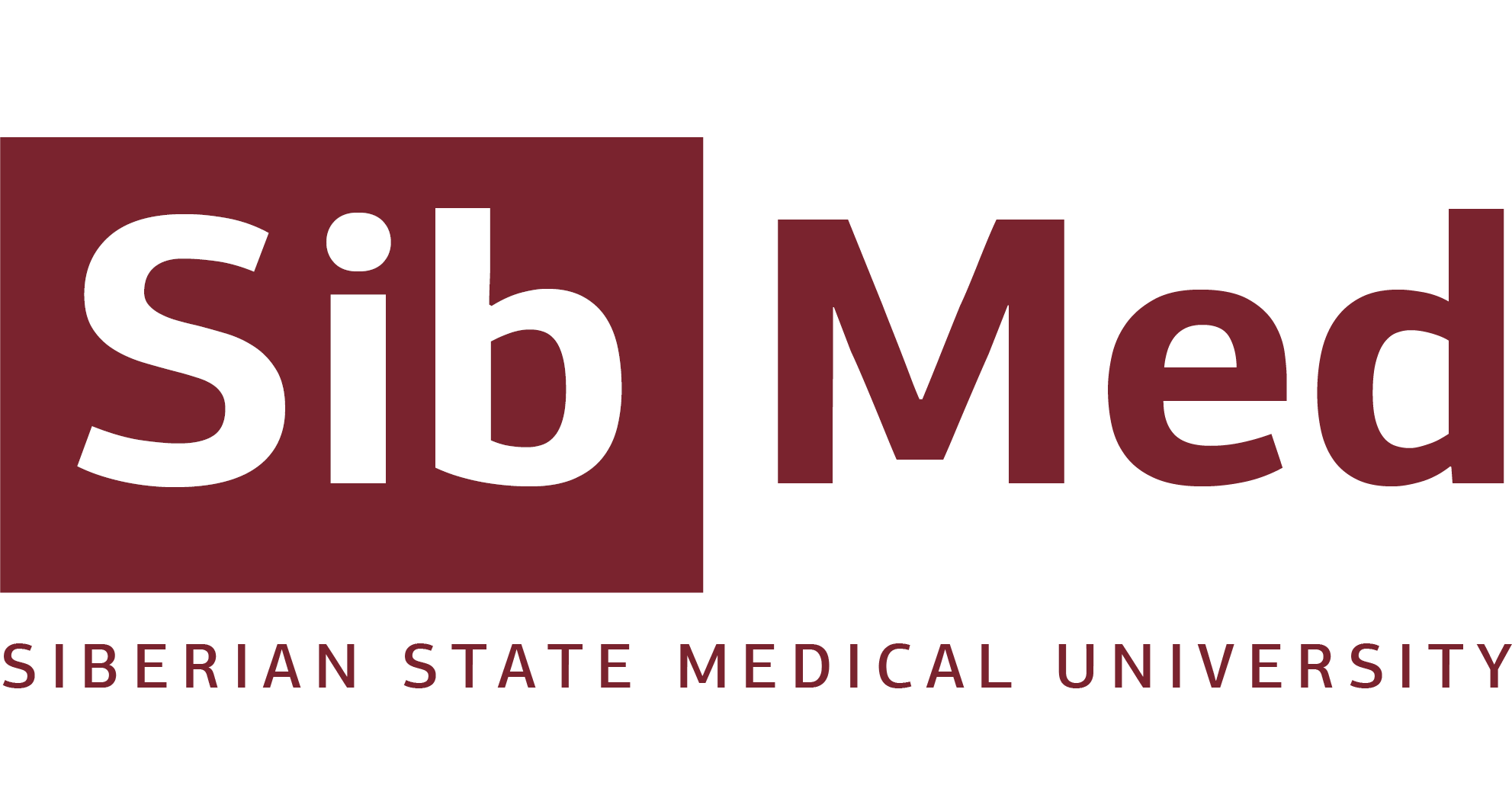Clinics & Departments
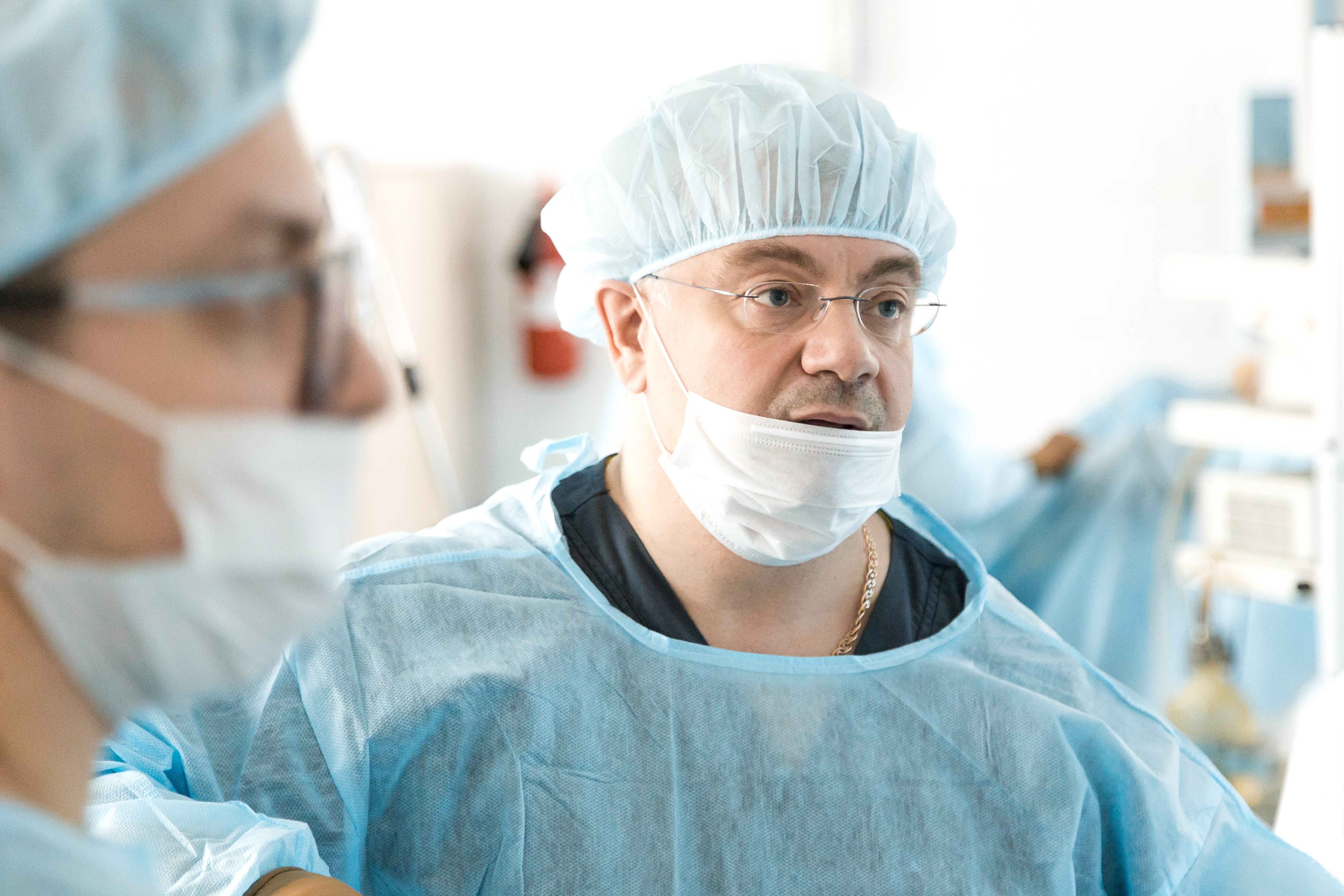
Vladimir N. Tkachev, Head of the Obstetrics and Gynecology Clinic of the Siberian State Medical University Hospital, Candidate of Medical Sciences, highest rank
The SibMed Obstetrics and Gynecology Clinic is one of the largest clinics in Tomsk Region, which provides a full range of highly professional, state-of-art medical care for patients with various forms of gynecological conditions. The Clinic annually renders assistance to more than 2000 women, of whom 250 receive highly complex operations. Over the course of past 20 years, about 90% of surgical interventions have been performed at the Clinic with minimally invasive endoscopic access. The Clinic is the base of the Department of Obstetrics and Gynecology at the Siberian State Medical University.
Areas of expertise
- Reconstructive-plastic, organ-saving operations for uterine myoma of various sizes and nodular form of adenomyosis;
- Removal of tumors and tumor-like formations of the ovaries within healthy tissues using mainly laparoscopic and combined access;
- Excision of foci of infiltrative endometriosis using laparoscopic access;
- Sling operations (TVT-0, TVT, TOT) using implants in the presence of stress urinary incontinence;
- Surgical treatment of genital prolapse with various techniques, including using mesh implants;
- Surgical treatment of tumors of the reproductive system during pregnancy;
- Reconstructive-plastic, organ-preserving operations on the internal and external genital organs with endoscopic, vaginal and abdominal access and their combination in the presence of malformations of the external and internal genital organs;
- Treatment of diagnostic and therapeutic manipulations in the presence of tubal-peritoneal, endocrine and uterine forms of infertility;
- Surgical treatment of intrauterine condition (submucous myomatous nodes, polyps and endometrial hyperplasia, intrauterine synechia).
Indications for planned hospital admission
- Benign tumors of the peri-vaginal structures, uterus, vulva, and perineum (cysts, fibroids, cystomas);
- Chronic recurrent inflammation of the peri-vaginal structures and uterus with pain and bleeding;
- Menstrual disorders;
- Female infertility (all forms);
- Uterine cavity cervical and canal conditions (hyperplasia, endometrial polyp, cervical canal, etc.);
- Background diseases and precancerous conditions of the cervix;
- Pregnancy failure up to 22 weeks.

 Medical assistance in the field of "Urology" at SibMed is provided by two departments: A.G. Savinych Hospital Surgery Clinic of Siberian State Medical University Hospital and the In-patient Surgery Clinic of Siberian State Medical University Hospital.
Medical assistance in the field of "Urology" at SibMed is provided by two departments: A.G. Savinych Hospital Surgery Clinic of Siberian State Medical University Hospital and the In-patient Surgery Clinic of Siberian State Medical University Hospital.
Victor R. Latypov, Head of the Urology Department at In-patient Surgery Clinic of Siberian State Medical University Hospital, Doctor of Medical Sciences, highest rank
Maxim S. Lozovsky, Head of the Urology Department at A.G. Savinych Hospital Surgery Clinic of Siberian State Medical University Hospital, rank I
Urology Departments at the SibMed Hospital are the leading divisions in Tomsk Region that provide highly qualified medical care by means of diagnosis and treatment.
The Urology Departments yearly conduct more than
- 800 operations
- 200 out of the total number are performed applying high-tech methods
- 80% of operations are conducted with minimally invasive endoscopic access
Areas of expertise
- Urogenital system organs surgeries using ablation technologies (ultrasound, cryo, radio frequency, laser, plasma);
- Surgeries of the urogenital system organs with implantation of synthetic complex and mesh prostheses;
- Recurrent and especially complex operations on the urogenital system organs;
- Surgeries of the urogenital system organs using laparoscopic techniques.
Indications for planned hospital admission
- Surgical treatment of urolithiasis (any level of localization);
- Hydronephrosis of various etiologies;
- Nephroptosis, for surgical treatment;
- Surgical treatment of varicose veins of the spermatic cord;
- Surgical treatment of hydrocele;
- Penile diseases: hypospadias, phimosis, paraphimosis;
- Abnormalities in the development of the Urogenital system: kidneys, blood vessels of the kidneys, ureters, bladder, urethra;
- Uterine neuromuscular dysplasia (megaureter);
- Surgical treatment of bladder-ureter reflux;
- Surgical treatment of ureteric stricture;
- Chronic recurrent cystitis, leukoplakia of the bladder;
- Neurogenic bladder dysfunction;
- Kidney cysts, spermatic cord, epididymis;
- Urinary incontinence (for examination);
- Benign prostatic hyperplasia (for examination, prostate biopsy).

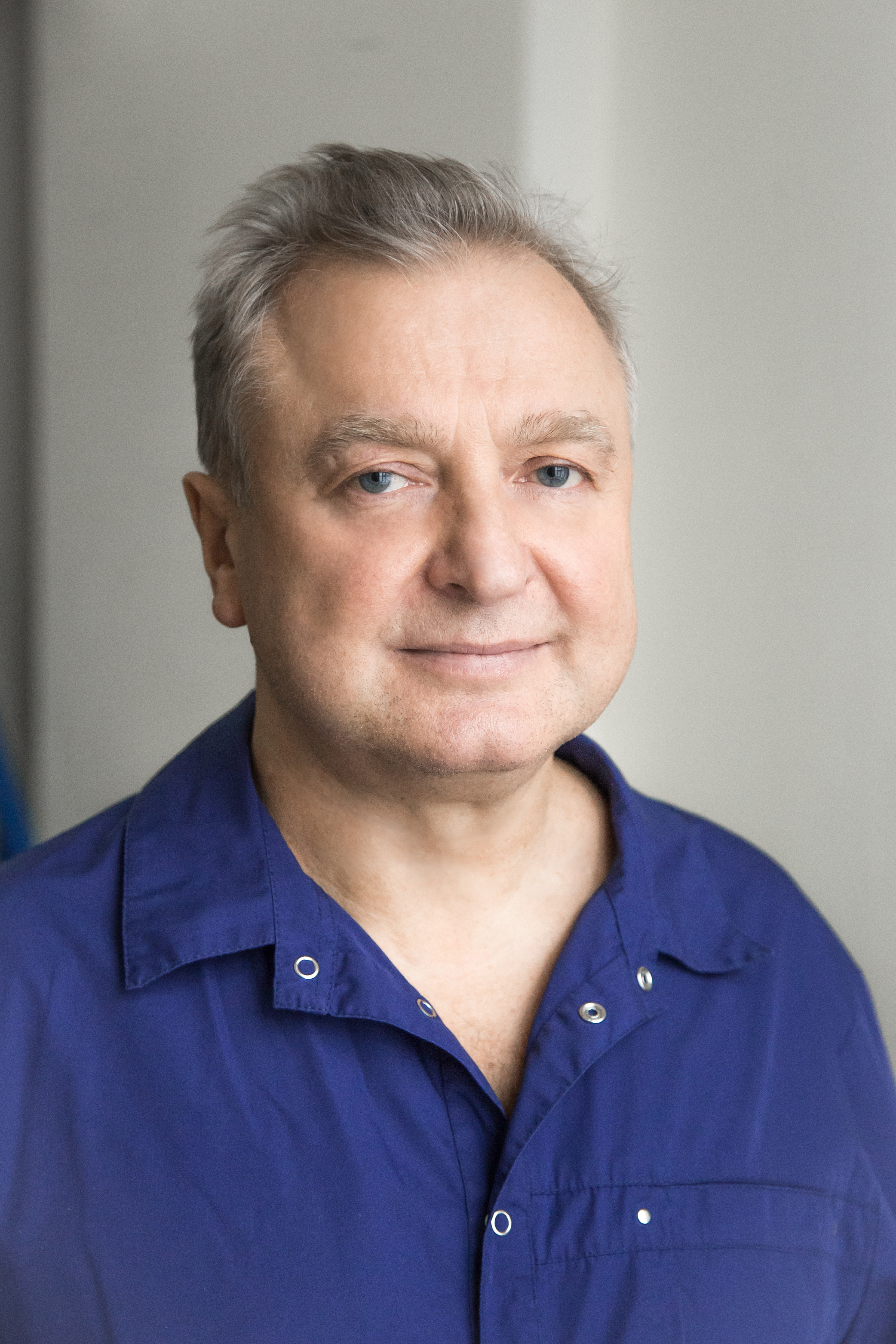 There are two departments specializing in surgery at SibMed Hospital, namely the Department of Surgery in A.G. Savinych Hospital Surgery Clinic of Siberian State Medical University Hospital and Department of Surgery in In-patient Surgery Clinic of Siberian State Medical University Hospital.
There are two departments specializing in surgery at SibMed Hospital, namely the Department of Surgery in A.G. Savinych Hospital Surgery Clinic of Siberian State Medical University Hospital and Department of Surgery in In-patient Surgery Clinic of Siberian State Medical University Hospital.
Vasily V. Skidanenko, Head of the Department of Surgery in A.G. Savinych Hospital Surgery Clinic of Siberian State Medical University Hospital, Doctor of Medical Sciences, highest rank
Igor Yu. Klinovitsky, Head of the Department of Surgery in the In-patient Surgery Clinic of Siberian State Medical University Hospital, Candidate of Medical Sciences, highest rank
- 5,000 patients per year
- 10% use of high-tech treatment methods
- Specialization in cardiovascular surgery
- The first reconstructive plastic surgery in esophageal pathology beyond the Urals
Areas of expertise
- Surgery of the abdominal organs: diseases of the esophagus, stomach, intestines, spleen (achalasia of the cardia, diverticulum of the esophagus, hiatal hernia, peptic ulcer, benign tumors, etc.);
- Surgery of the hepatopancreatobiliary zone: diseases of the biliary tract, liver, pancreas (gallstone disease and its complications, strictures of the bile ducts, chronic pancreatitis, cysts and benign tumors of the pancreas, cysts and benign tumors, as well as parasitic lesions of the liver, etc.);
- Colorectal surgery: hemorrhoids, anal fissure, epithelial-coccygeal cysts, diverticular bowel disease, etc.;
- Hernia surgery: all types of hernias of the anterior abdominal wall (inguinal, femoral, umbilical, postoperative, etc.);
- Endocrine system surgery: thyroid gland, adrenal glands, neuroendocrine tumors of the abdominal cavity;
- Lower limb vein surgery: varicose veins.
Indications for planned hospital admission
- Unstressed hernias of all localizations;
- Gallstone disease (cholelithiasis). Chronic cholecystitis without exacerbation;
- Complications and manifestations of gallstone disease that do not require emergency hospitalization (choledocholithiasis without obstructive jaundice, bile fistulas, strictures of the bile ducts);
- Pancreatic diseases (cysts, benign tumors, pancreatic fistula, chronic pancreatitis;
- Unspecified diseases of the abdominal cavity and retroperitoneal space for invasive diagnostics (biopsy, puncture biopsy, laparoscopy, endoscopic retrograde cholangiopancreatography);
- Duodenal ulcer and stomach ulcer: (chronic "callous" ulcers, stenosis, penetration);
- Post gastroresection syndromes;
- Liver diseases: benign tumors of the liver, alveococcosis, echinococcosis;
- Surgical treatment of benign diseases of the thyroid gland (nodular goiter, cysts, thyroiditis, toxic goiter);
- Surgical treatment of varicose veins of the lower extremities;
- Diseases of the esophagus: cicatricial strictures of the esophagus, achalasia, cardiospasm, diverticulitis of the esophagus, hiatal hernia;
- Surgical treatment of chronic appendicitis;
- Diseases of the spleen and adrenal glands requiring surgical treatment;
- Extraorganic tumors of the retroperitoneal space;
- Adhesive disease (if necessary, planned surgical treatment).
Purulent surgery
- Epithelial-coccygeal cyst;
- Purulent fistulas of the abdominal wall and abdominal cavity;
- Paraproctitis;
- Chronic hemorrhoids, anal fissure;
- Trophic ulcers in the presence of chronic venous insufficiency, for conservative treatment;
- Chronic suppurative osteomyelitis;
- Dry gangrene of the fingers of any etiology;
- Diabetic foot syndrome.
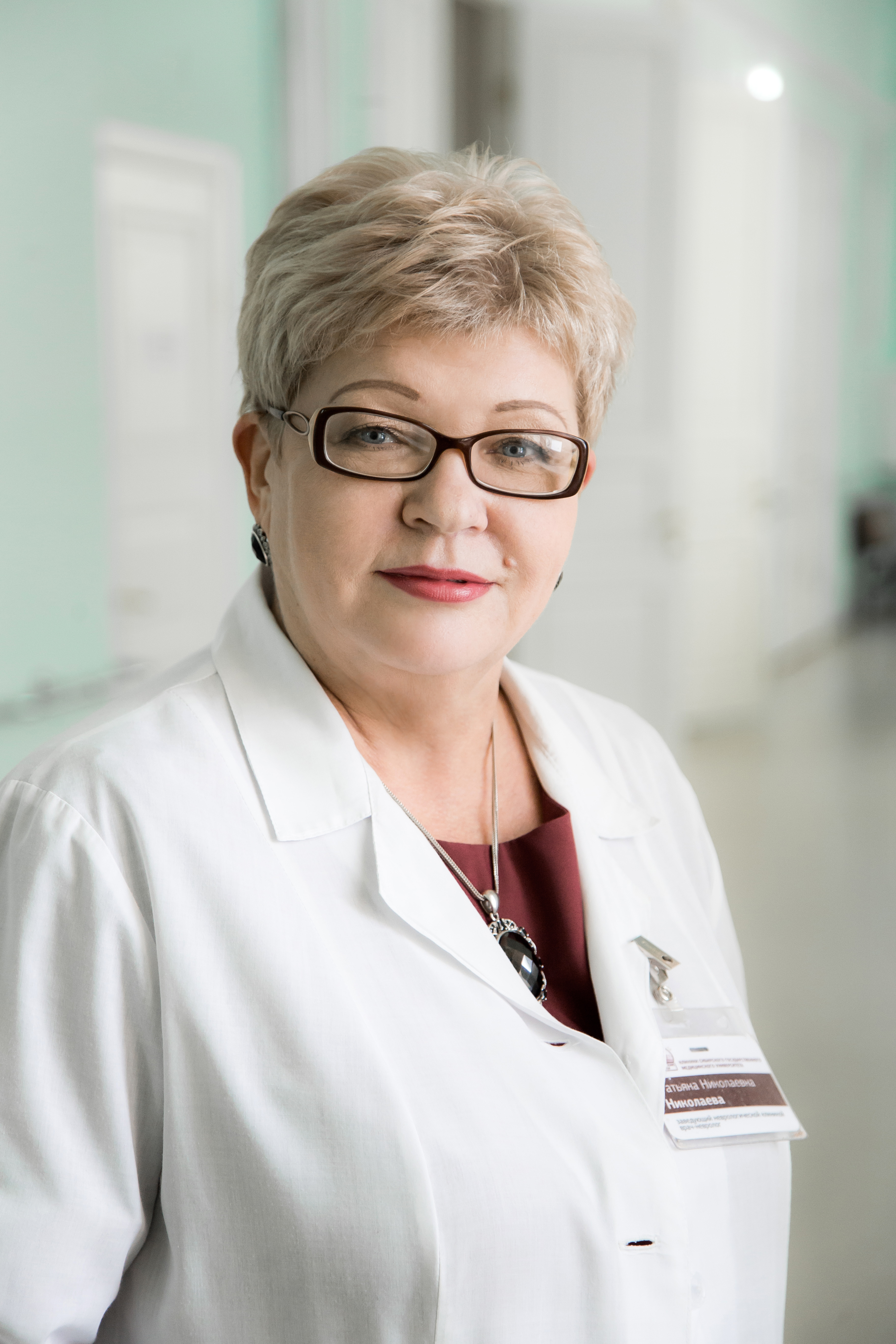
Tatyana N. Nikolaeva, Head of the Neurology Clinic of the Siberian State Medical University Hospital, Candidate of Medical Sciences, highest rank
The Neurology Clinic was opened in 1894. Back then it was part of the Department of Nervous and Mental Diseases with 10 beds and a psychotechnical lab. For many years the Clinic was a place where scientific and practical work on the diagnosis and treatment of neurological pathology was taking place.
Utilizing modern research and diagnostics, the Clinic specialists focus on the use of the latest medical technologies for the diagnosis, treatment and prevention of the most common and socially significant diseases of the nervous system.
Areas of expertise
- Musculoskeletal system diseases (osteochondrosis, herniated discs, myalgia, radiculitis);
- Vegetative disorders (headaches, vegetative-vascular dystonia, chronic fatigue syndrome, asthenic disorders, sleep disturbance, panic attacks, impaired memory, attention, decreased mood);
- Disorders of cerebral circulation (strokes);
- Residual effects of stroke;
- Encephalopathy;
- Headache, migraine;
- Vestibular disorders (dizziness, tinnitus);
- Parkinson's disease and other extrapyramidal diseases (dystonia and dystonic syndromes);
- Hereditary diseases of the nervous system (hereditary ataxia, spinal amyotrophy, Huntington’s chorea, Wilson-Konovalov’s disease, hereditary polyneuropathies, myopathies, etc.);
- Neuralgia and neuropathy of the cranial nerves (facial, trigeminal, occipital, etc.);
- Inflammatory and toxic mono-and polyneuropathies;
- Multiple sclerosis and other demyelinating diseases of the brain and spinal cord (encephalomyelitis, demyelinating diseases of the brain);
- Neurogenic disorders of urination;
- Degenerative diseases of the nervous system (amyotrophic lateral sclerosis, dementia, Alzheimer's disease, multisystem atrophy, olivopontocerebellar atrophy);
- Epilepsy and other paroxysmal conditions.
Indications for planned hospital admission
- Demyelinating diseases (multiple sclerosis, neuromyelitis, myelitis, acute and chronic polyneuropathy, optic neuritis, non-infectious encephalitis);
- Degenerative diseases (Parkinson's disease, Alzheimer's disease, other memory disorders, chorea, hyperkinesis);
- Cerebrovascular diseases (vascular crises, chronic cerebral ischemia of various origins, consequences of stroke, cerebral atherosclerosis);
- Verterbrogenic pathologies (osteochondrosis, back pain);
- Cervicobrachial, cervical-cranial syndromes;
- Discogenic radiculopathies in the acute and chronic periods;
- Neuritis of the cranial nerves (facial nerve, vestibular nerve, etc.);
- Neuritis of the peripheral nerves (ulnar neuritis, radial neuritis, fibular neuritis, etc.);
- Neuropathies of various origins (vascular, inflammatory, alcoholic and others);
- Autonomic nervous system disorders (autonomic crises, vegetative-vascular dystonia, panic attacks).

Daria V. Kozyritskaya, Head of the Children's Clinic of Siberian State Medical University Hospital, Candidate of Medical Sciences, highest rank
Specialists of the highest rank, doctors and candidates of medical sciences provide medical assistance to children in the following areas:
- Neurology
- Pulmonology
- Rheumatology
- Hematology
- Gastroenterology
- Parasitology
- Endocrinology
In the Children's Clinic, consultations are held on an ongoing basis. Very often doctors with different background are involved, namely non-staff specialists in children's care, as well as employees of the University departments and other departments of the Siberian State Medical University Hospital. The Clinic conducts telemedicine consultations with the best specialists from all over Russia. Thanks to this, leading pediatricians conduct collective teleconsultations and jointly determine the treatment plan.
Since 2016, there is the possibility for hospital admission as part of high-tech medical care:
- Crohn's disease, ulcerative colitis;
- Juvenile rheumatoid arthritis, systemic lupus erythematosus, dermatopolymiosis, juvenile nodular polyarthritis, juvenile ankylosing spondylitis;
- Cystic fibrosis.
Indications for planned hospital admission (specialization in rheumatology)
- Juvenile rheumatoid (chronic, idiopathic) arthritis;
- Juvenile ankylosing spondylitis;
- Juvenile arthritis with systemic onset;
- Juvenile polyarthritis (seronegative);
- Pauciarticular juvenile arthritis;
- Other juvenile arthritis;
- Reactive arthropathies of any degree of activity;
- Nodular polyarthritis and related conditions;
- Necrotizing vasculopathies;
- Systemic lupus erythematosus;
- Dermatopolymyositis;
- Systemic sclerosis;
- Systemic diseases of connective tissue, correction of treatment, clarification of the diagnosis;
- Joint syndrome of unclear origin to clarify the diagnosis.
Indications for planned hospital admission (specialization in neurology)
- Autoimmune diseases of the nervous system: encephalitis (except tick-borne), encephalomyelitis, multiple sclerosis (assessment of the effectiveness of therapy);
- Inherited diseases of the nervous system: progressive muscular dystrophies, hereditary motor and sensory neuropathies, hereditary ataxia, spinal muscular atrophy and related syndromes;
- Diseases of the peripheral nervous system: cranial nerve neuropathies, nerves neuropathies of the upper and lower extremities, inflammatory demyelinating polyneuropathies (Guillain-Barré syndrome);
- Severe forms of epilepsy;
- Difficult to diagnose neurological diseases: tuberous sclerosis, paroxysmal disorders of consciousness, unspecified;
- Spastic forms of cerebral palsy (botulinum therapy).
Indications for planned hospital admission (specialization in pulmonology)
- Obstructive bronchitis, without effective treatment on an outpatient basis;
- Chronical bronchitis;
- Bronchitis, unspecified as acute or chronic;
- Chronic obstructive pulmonary disease;
- Asthma of bronchial moderate and severe severity;
- Sarcoidosis of the lungs;
- Bronchiectasis.
Indications for planned hospital admission (specialization in hematology)
- Hemangiomas, for right therapy selection;
- Anemia of unknown origin (not verified) of moderate severity, severe, except for aplastic;
- Inherited diseases of blood coagulation factors;
- Platelet pathology, thrombocytopenic purpura;
- Diseases accompanied by impaired hemostasis (hemophilia, von Willebrand disease);
- Diseases of the spleen;
- Allergic purpura (hemorrhagic vasculitis);
- Other diseases of the blood and blood-forming system.
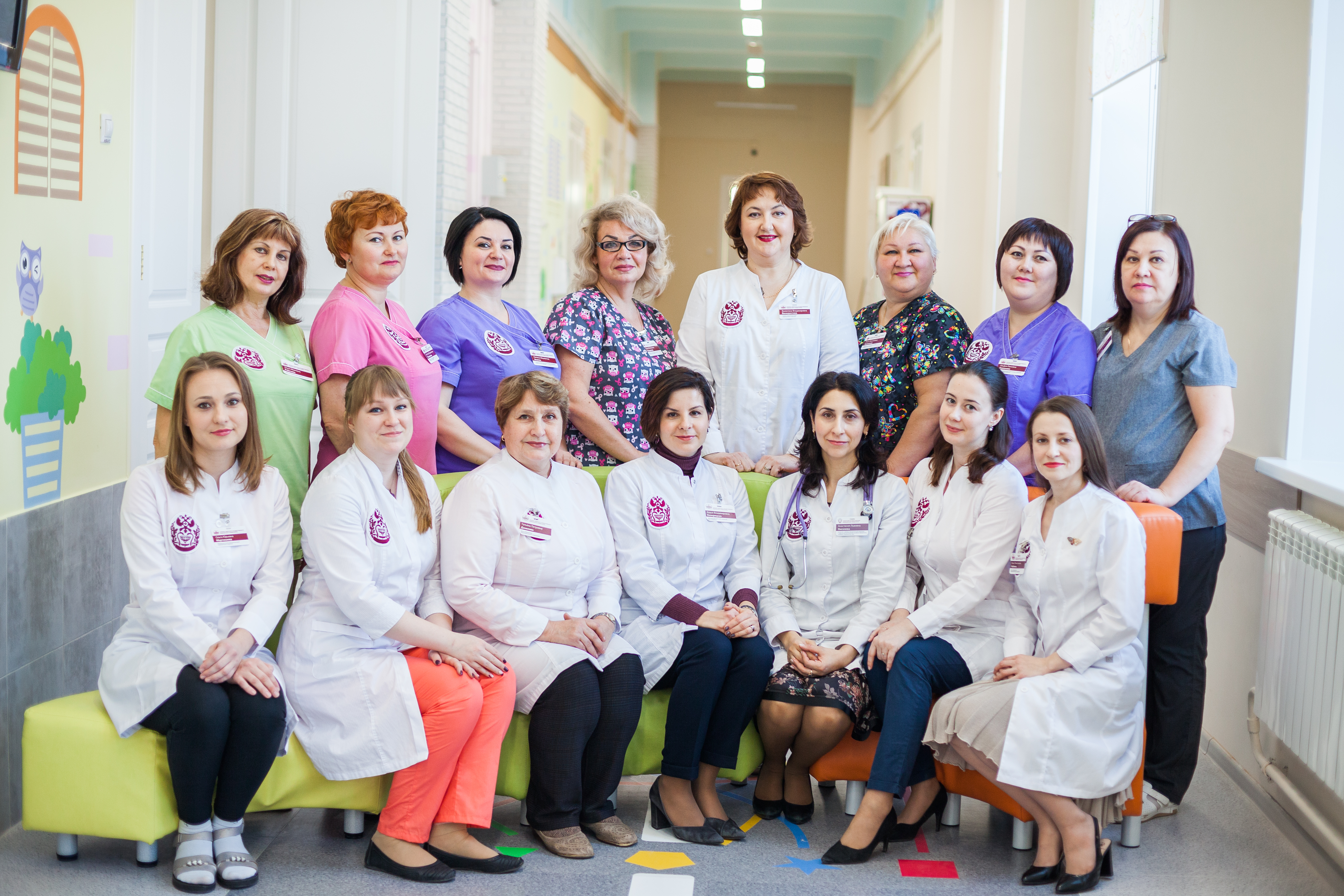
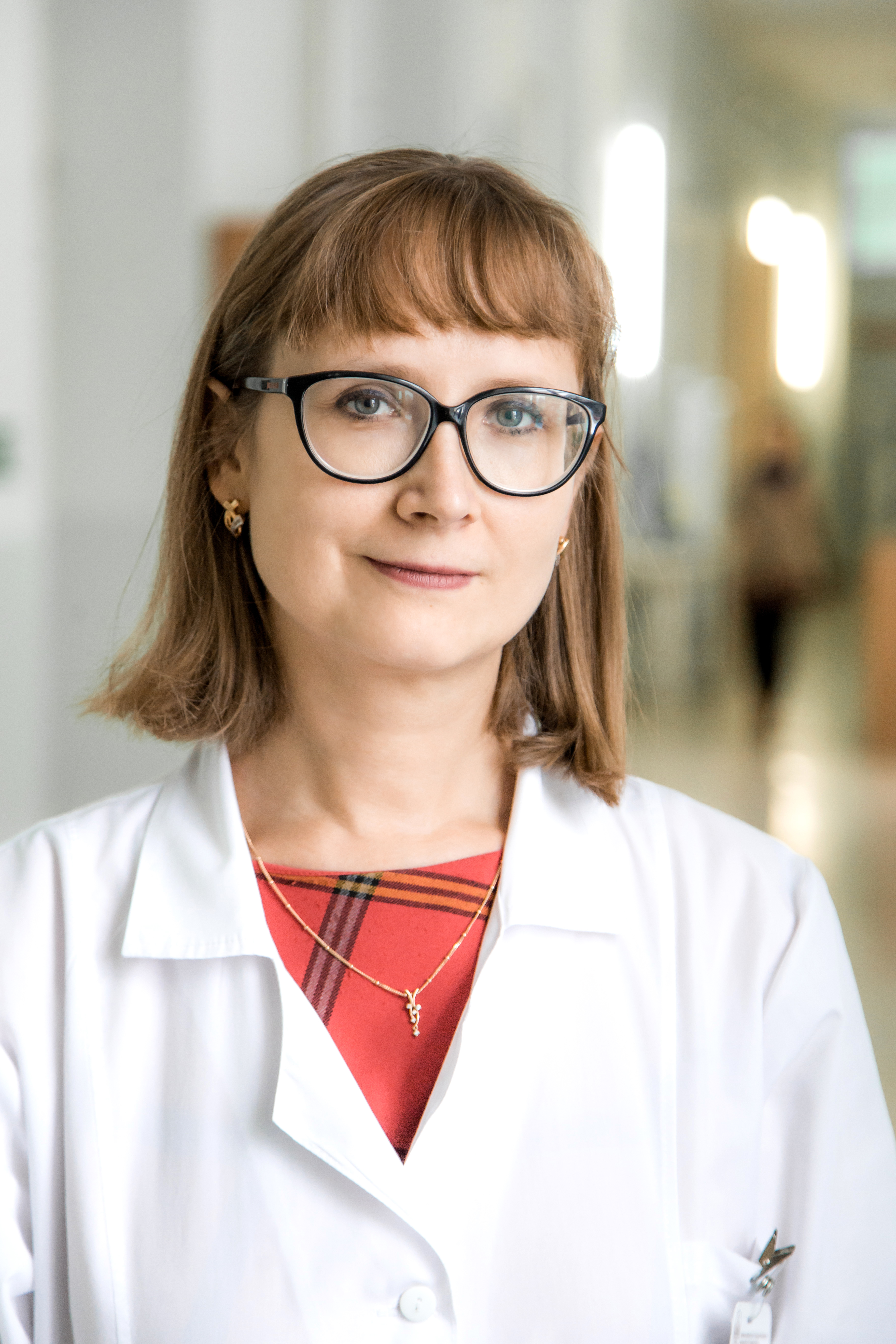
Tatyana V. Saprina, Head of the Endocrinology Clinic of the Siberian State Medical University Hospital, Doctor of Medical Sciences, highest rank
The Endocrinology Department provides medical and advisory assistance to people in Tomsk and the Tomsk region, as well as to other regions of Russia. The department has unique competencies because of the close interaction between all functional departments: surgery, ophthalmology, obstetrics, gynecology, etc. SibMed Hospital Endocrinology Department is unique because it is well situated and the specialists always work in interdisciplinary teamswhich helps to provide continuity of treatment for all patients’ endocrine conditions.
Areas of expertise
- Diabetology: diagnostics, corrections using glycemia monitoring, if necessary, the installation of continuous administration of insulin (pump), training at the "Diabetes mellitus” school. Treatment of complications of diabetes mellitus together with surgeons, optometrists, and neurologists. Treatment is possible in the outpatient clinic and all-day hospitals.
- Thyroidology: correction of thyroid dysfunction, severe thyrotoxicosis, myxedema, subacute thyroiditis, ophthalmopathy. Jointly with surgeons, the management of thyroid patients before and after surgical treatment.
- Adrenal glands, pituitary gland: clarification of diagnosis, diagnostic tests, and recommendations for further management of patients. Together with urologists, patient management before and after surgical treatment.
- Obesity: diagnosis and education. Determination of treatment tactics - conservative or surgical treatment.
Indications for planned hospital admission
- Treatment modifications for patients with diabetes mellitus of any type;
- Treatment of patients with diabetes complications;
- Patients transfer for with type 2 diabetes;
- First identified diabetes mellitus requiring insulin therapy;
- Thyroid dysfunction with disability (thyrotoxicosis, hypothyroidism, subacute thyroiditis, severe ophthalmopathy);
- Diagnosis of conditions affecting the hypothalamic-pituitary, adrenal gland, diagnostic tests;
- Pituitary adenomas, hormonal active;
- Ophthalmopathy in diseases of the endocrine system of moderate and severe degree, requiring glucocorticoid therapy (pulse therapy).
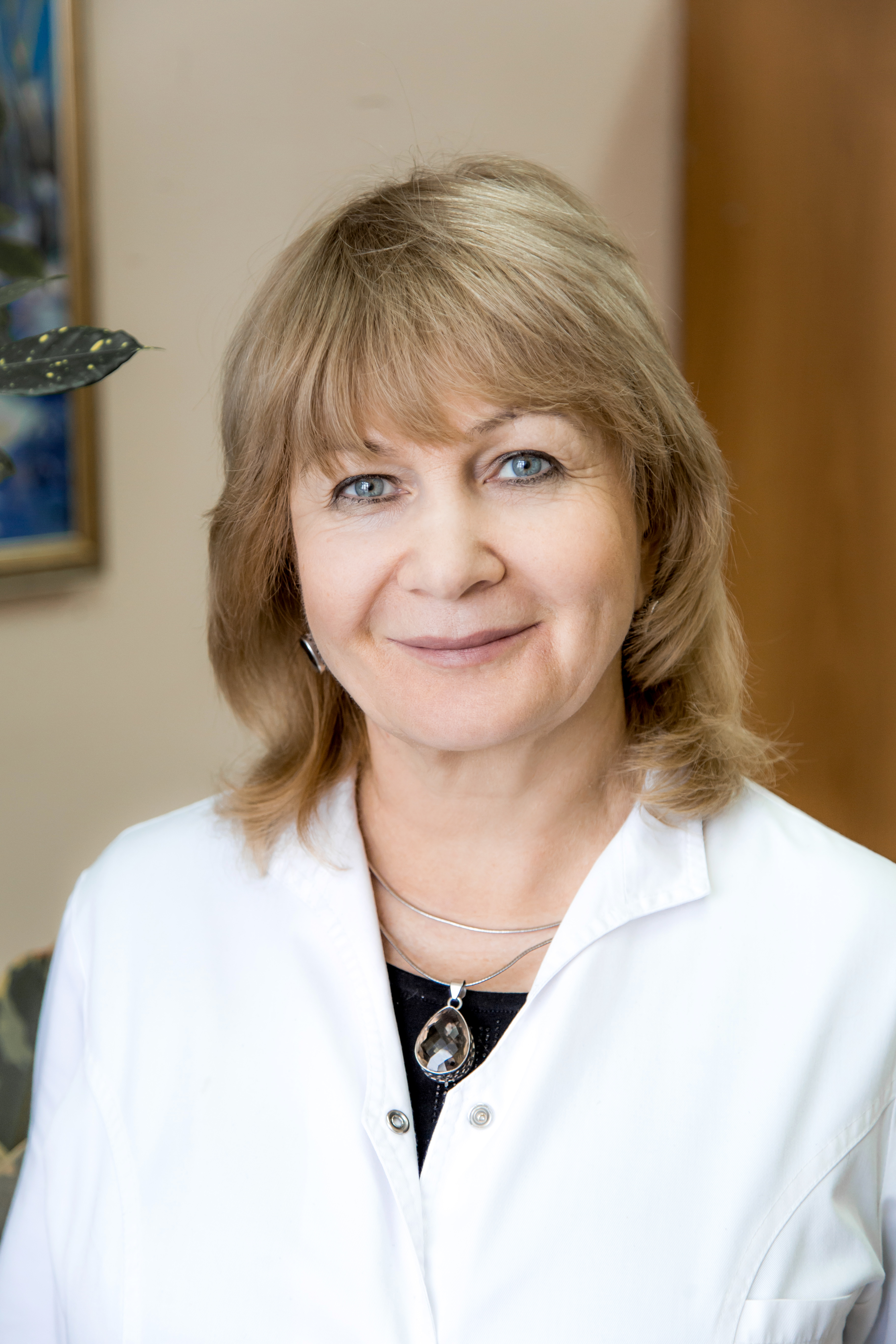
Larisa V. Eliseeva, Head of the Rheumatology Department in the General Medicine Clinic of the Siberian State Medical University Hospital, Candidate of Medical Sciences, highest rank, Chief External Expert at the Department of Health of the Tomsk Region in organizing specialized medical care in the field of “rheumatology”
The Rheumatology Department is the only department of its kind in the Tomsk Region. All specialists have certificates in rheumatology and experience using the most modern, high-tech and effective methods of diagnosis and therapy.
The department’s doctors have gained rich experience in the diagnosis and treatment of the most complex clinical cases of rheumatic diseases, including such as:
- Rheumatoid arthritis;
- Reactive arthritis;
- Ankylosing spondylitis;
- Spondylitis;
- Systemic lupus erythematosus;
- Acute rheumatic fever;
- Chronic rheumatic heart disease;
- Systemic scleroderma;
- Sjogren's disease;
- Systemic vasculitis;
- Osteoporosis;
- Osteoarthrosis;
- Gout;
- Other systemic diseases of the connective tissue.
Indications for planned hospital admission
- Newly diagnosed diseases;
- Clarification of the diagnosis or differential diagnosis applying lab testing, including immunological and instrumental methods of research;
- Lack of effect from treatment carried out in medical institutions at the place of residence;
- carrying out intensive treatment methods (including high doses of corticosteroids and cytostatics, extracorporeal methods of treatment);
- The occurrence of severe systemic manifestations, severe complications of the disease or drug therapy;
- Determination of indications for prescribing and conducting the first courses of treatment with genetically engineered pharmaceuticals, treatment modification and monitoring of the response to treatment in patients receiving genetically engineered pharmaceuticals;
- Severe functional impairment in secondary arthrosis and preparation for endoprosthetics;
- During the selection of basic therapy and for its correction in patients with systemic diseases of the connective tissue and systemic vasculitis with a high and moderate degree of activity.
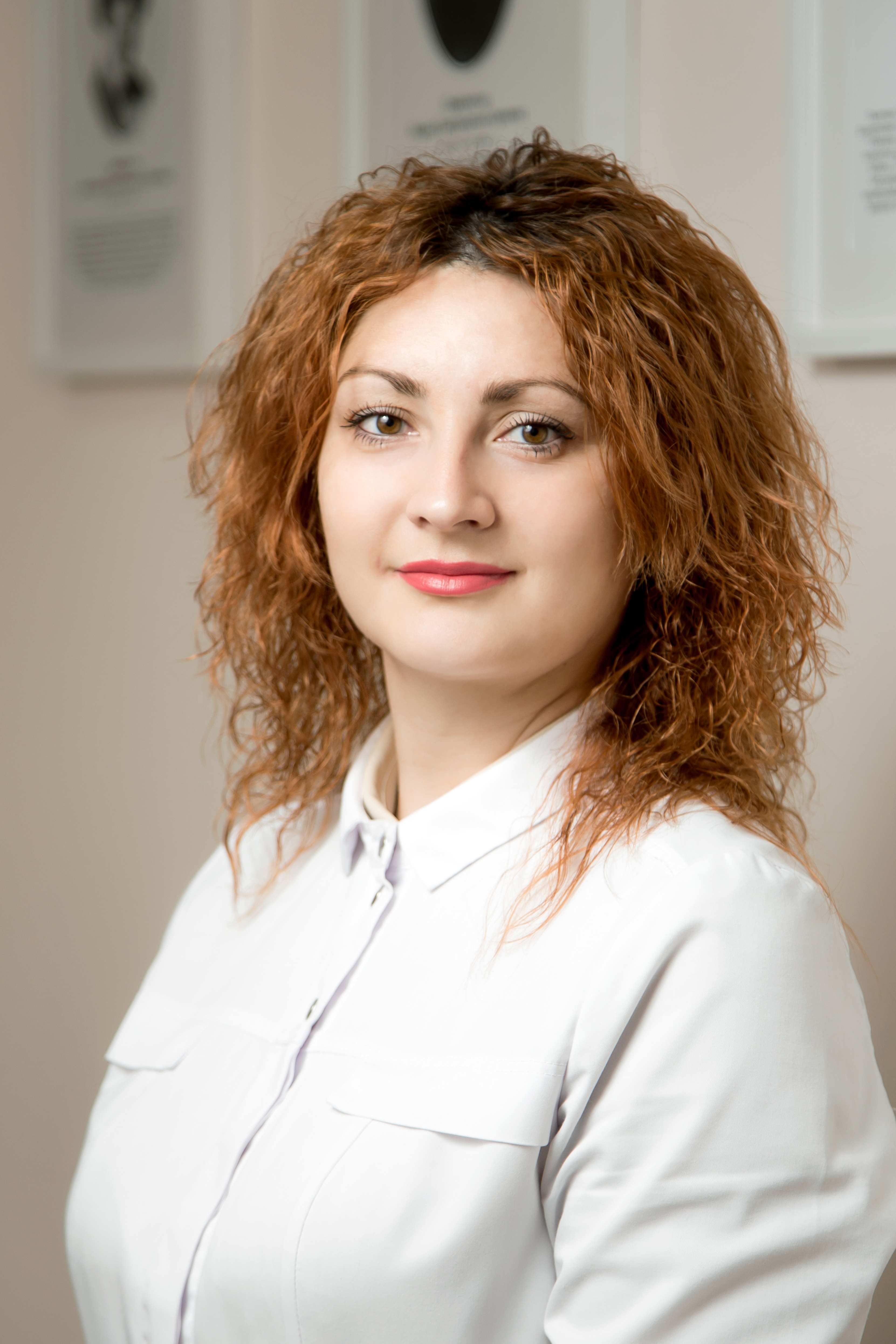
Yana A. Martusevich, Head of the Ophthalmology Clinic of Siberian State Medical University Hospital, Candidate of Medical Sciences, highest rank, Chief External Expert at the Department of Health of the Tomsk Region in organizing specialized medical care in the field of "ophthalmology".
The Ophthalmology Clinic of the Siberian State Medical University is the leading branch of the region and provides highly qualified comprehensive medical-diagnostic, consultative, emergency care to patients with an ophthalmological profile. Annually, over 3,500 patients are treated at the clinic, 400 of them using high technology.
Areas of expertise
- Modern surgical treatment of cataracts using the technology of seamless small incisions, including with the implantation of toric, multifocal lenses;
- Reconstructive surgery of the cornea (through keratoplasty);
- Early diagnosis and treatment of glaucoma (laser, surgical);
- Surgery for retina conditions and vitreous body, including patients with diabetes mellitus, eye injury;
- Early diagnosis, laser, surgical treatment, intravitreal injection of angiogenesis inhibitors in diabetic retinopathy.
Indications for planned hospital admission
- Chalazion;
- Entropion of the eyelid;
- Ectorpion of the eyelid;
- Ptosis of the eyelid;
- Xanthelasma of the eyelid;
- Exophthalmic conditions of the orbit;
- Pterygium;
- Benign neoplasms of the conjunctiva of the eyelids and eyeball;
- Epithelial-endothelial dystrophy of the cornea;
- Diseases and scars of the cornea;
- Cataract;
- Age-related macular degeneration of the retina;
- Hereditary retinal dystrophy;
- Glaucoma;
- Diabetic retinopathy;
- Vitreous diseases.
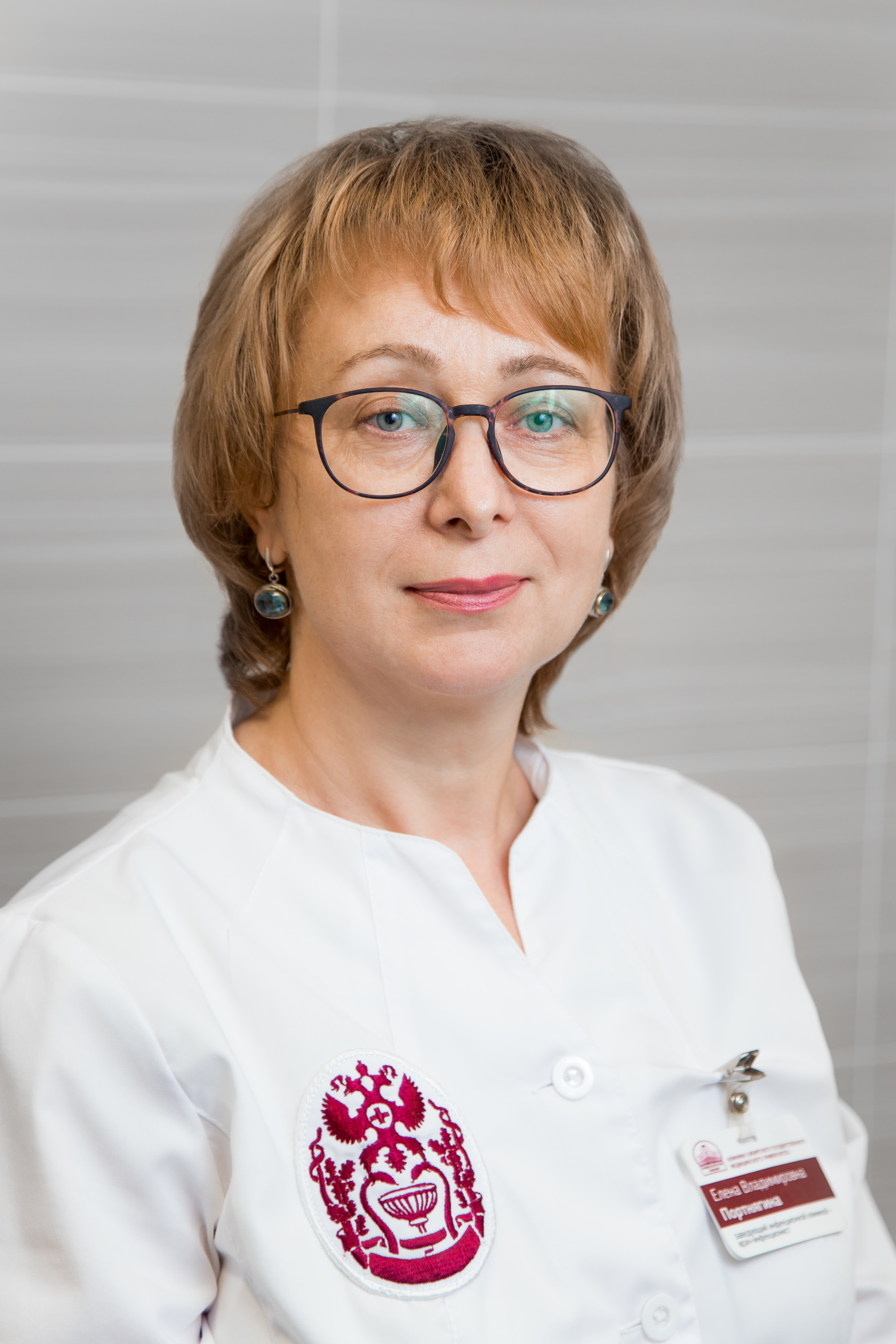
Elena V. Portnyagina, Head of the Infectious Disease Clinic of the Siberian State Medical University Hospital, Candidate of Medical Sciences, highest rank
The Infectious Disease Clinic of the Siberian State Medical University, founded in 1924, is one of the oldest in the Siberian region and the Far East. Successful diagnosis and treatment of patients with infectious diseases in the clinic is determined by the interdisciplinary department collaboration, highly qualified employees and a constantly developing diagnostics and treatment methods that meet the requirements of the modern time. Up to 1300 patients undergo treatment at the clinic per year.
The Clinic’s doctors have unique practical experience in the diagnosis and treatment of patients with tick-borne encephalitis and tick-borne borreliosis, as well as with relatively new tick-borne infections - ehrlichiosis, babesiosis, West Nile fever, Siberian tick-borne rickettsiosis.
Diagnosis and treatment of patients with yersiniosis, erysipelas, brucellosis, tularemia, leptospirosis, typhoid fever, herpesvirus infections (herpes infection, EBV infection and CMVI), and various helminthiases (teniosis, teniarinhosis, diphyllobotri) are carried out at a high level.
Indications for planned hospital admission
- Helminthiasis - toxocariasis, anisacidosis, strongyloidosis, opisthorchiasis, diphyllobothriasis, trichocephalosis, teniosis, teniarinhosis, etc.;
- Protozoal infestations - giardiasis, toxoplasmosis;
- Brucellosis - chronic and residual forms;
- Ixodes tick-borne borreliosis - chronic forms;
- Rehabilitation of convalescents after tick-borne encephalitis (1-3 months after discharge from the hospital)
- Herpesvirus infections (EBV infection, CMVI, infections caused by herpes simplex virus types I, II, VI and VIII) - chronic forms in the reactivation phase;
- Chronic viral hepatitis - without cirrhosis of the liver for pathogenetic therapy.

Igor Yu. Klinovitsky, Head of the General Surgery Room in Department Clinics of Siberian State Medical University, Doctor of Medical Sciences, highest rank
Areas of expertise
The department provides surgical treatment of tumor diseases:
- Surgery of abdominal organs: neoplasms of the stomach, small and large intestines;
- Surgery of the hepatopancreatobiliary zone: neoplasms of the liver, pancreas, bile ducts;
- Surgery of the endocrine system: neoplasms of the thyroid gland;
- Surgery of neoplasms of soft tissues;
- Surgery of the genitourinary system: kidney, bladder, prostate, penis, testicles, ureter, urethra.
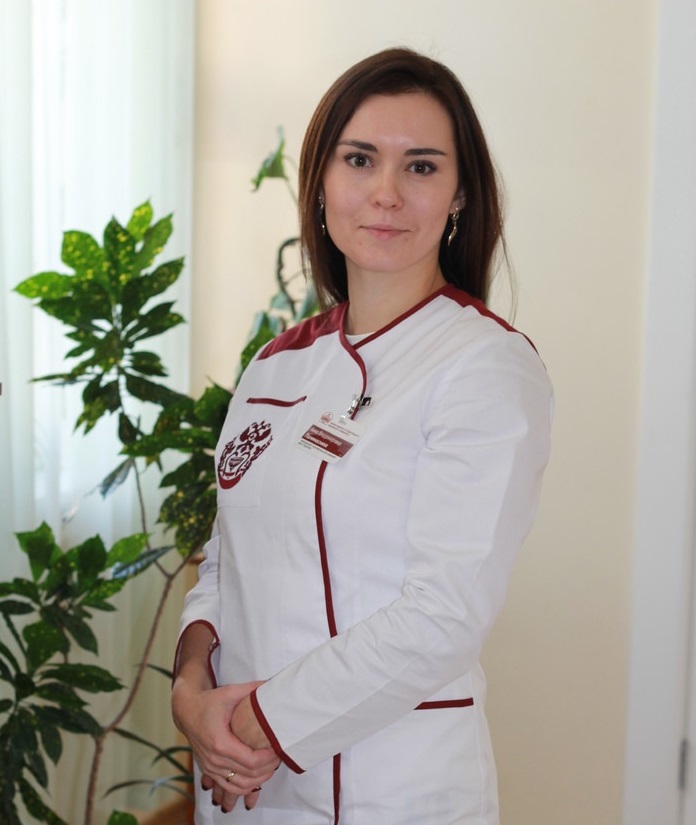
Anna V. Panimaskina, Head of the General Medicine Clinic of the Siberian State Medical University Hospital, first rank
Areas of expertise
The Clinic conducts examination and treatment of patient with the following Areas of expertises:
- Cardiology;
- Pulmonary;
- Gastroenterology;
- Rheumatology.
Indications for planned hospital admission
- Cardiology: coronary heart disease, cardiac arrhythmias (after coronary heart disease), arterial hypertension, myocarditis, infectious endocarditis, rheumatic heart disease, heart failure;
- Pulmonology: pneumonia, chronic obstructive pulmonary disease, bronchitis, bronchial asthma;
- Rheumatology: rheumatoid arthritis, reactive arthritis, systemic lupus erythematosus, systemic vasculitis, systemic scleroderma, spondylitis, gout, osteoarthritis and other inflammatory and degenerative diseases of the musculoskeletal system;
- Gastroenterology: peptic ulcer of the stomach and duodenum, chronic gastroduodenitis, cholangitis, cholecystitis (including opisthorchiasis), irritable bowel syndrome, chronic pancreatitis, ulcerative colitis, Crohn’s disease, enteropathy, chronic hepatitis, cirrhosis of the liver;
- Other therapeutic diseases: anemia.
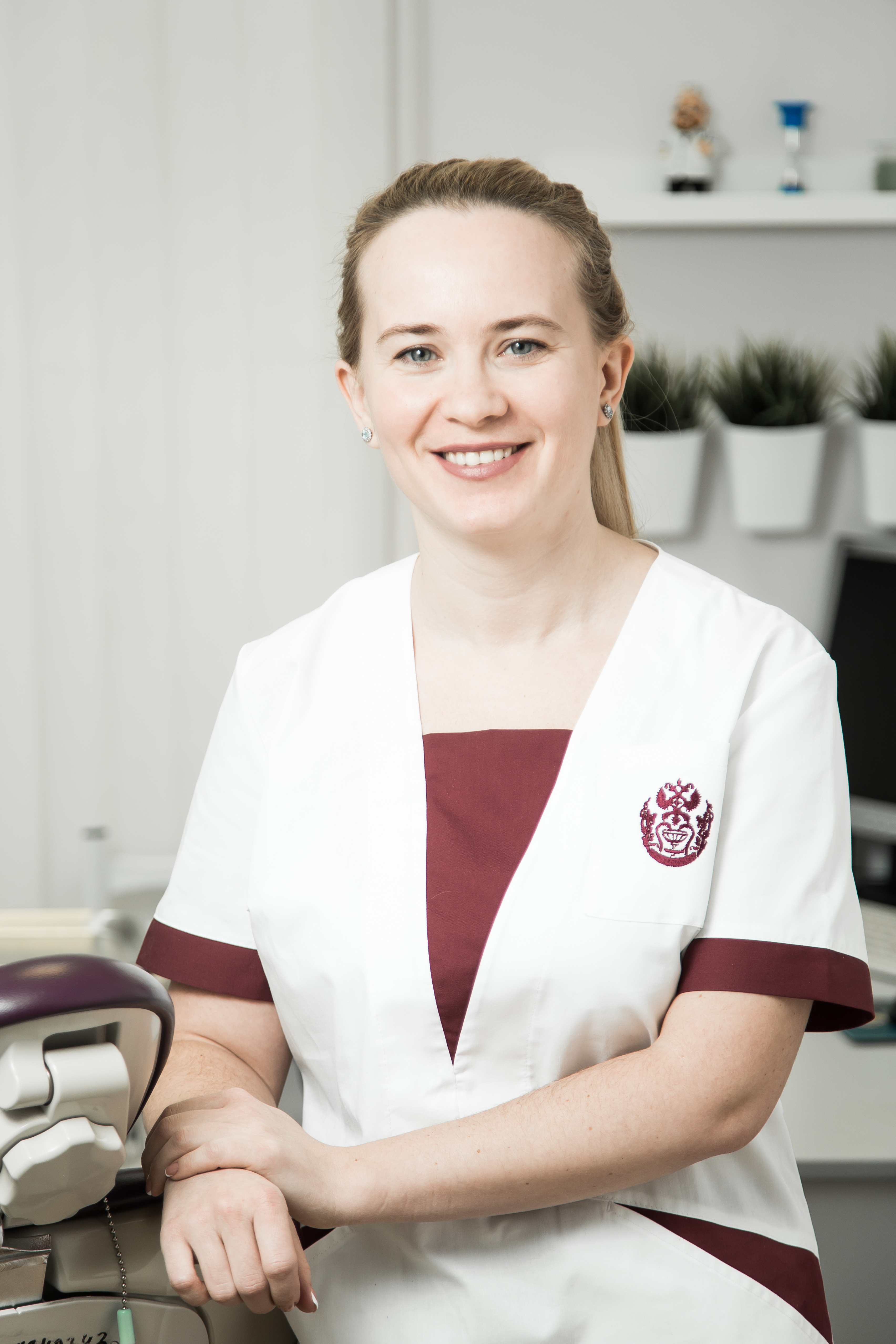
Anna V. Guseva, Head of the Dental Clinic of Siberian State Medical University Hospital
SibMed Dental Clinic is a modern medical institution, where patients are offered a wide range of services - from hygienic cleaning of the oral cavity to complex prosthetics.
Patients’ visits are conducted by highly qualified specialists: dentists, surgeons, orthopedists, as well as an orthodontist, periodontist, and pediatric dentist. Doctors at the Center possess advanced knowledge and skills in the treatment and prosthetics of teeth, and successfully deal with the problems of gums and oral mucosa. In the event that the patient’s dental diseases require an interdisciplinary approach, the Center’s doctors work in collaboration with a gastroenterologist, endocrinologist, ophthalmologist, ENT specialist, and other specialists at the Siberian State Medical University Hospital.
The technical equipment of the Center meets European standards. Doctors use modern imported equipment and high-quality materials, which ensure safe, pain-free manipulations.
Areas of expertise
- Professional cleaning and treatment of teeth and gums;
- Surgery;
- Gentle whitening of teeth;
- Orthodontics;
- Implantation and prosthetics;
- Pediatric dentistry.
